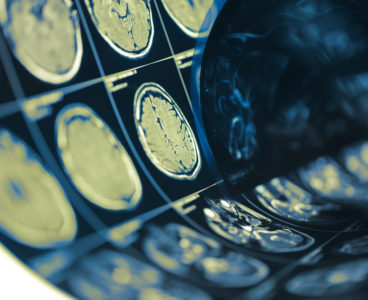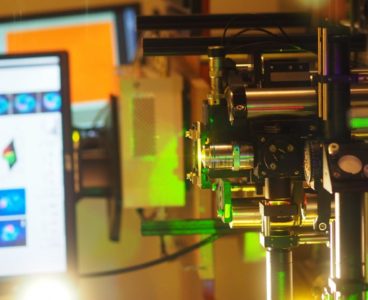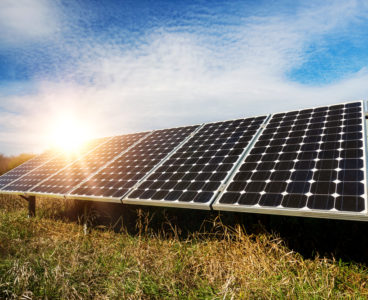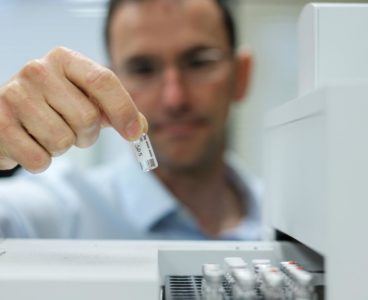Researchers in Canada, the United States, and Europe have developed a new way to remotely measure Earth’s magnetic field — by zapping a layer of sodium atoms floating 100 kilometers above the planet with lasers on the ground. The technique, documented in Nature Communications, fills a gap between measurements made at the Earth’s surface and…
Pre-Treating Fuel Cells With Plasma Solves Moisture Concerns
Fuel cells hold promise as a clean, renewable source of energy. But keeping them dry has long been a challenge, as they produce water during the process of converting hydrogen and oxygen into electricity. Now University of British Columbia researchers say they may have found a solution: pre-treating the electrode–a key component of fuel cells–with…
Concussions Loosen Insulation Around Brain Cells
Researchers Unlock Secrets of Plant Development
University of British Columbia researchers have discovered an internal messaging system that plants use to manage the growth and division of their cells. These growth-management processes are critical for all organisms, because without them, cells can proliferate out of control–as they do in cancers and bacterial infections. Plants use this messaging system to survive under…
Lasers Help Antimatter Chill Out
For the first time, physicists at CERN have observed a benchmark atomic energy transition in anithydrogen, a major step toward cooling and manipulating the basic form of antimatter. “The Lyman-alpha transition is the most basic, important transition in regular hydrogen atoms, and to capture the same phenomenon in antihydrogen opens up a new era in…
Super-Resolution Microscope Reveals Secrets of Deadly Nipah Virus
The deadly Nipah virus and others like it assemble themselves in a much more haphazard manner than previously thought, new UBC research has found. The discovery could allow scientists to develop more effective vaccines and rule out many approaches to fighting these viruses. Chemistry professor Keng Chou and his team of researchers from UBC and…
Recycling Experts Hit Milestone in Quest for Zero-Waste Phone
UBC researchers have perfected a process to efficiently separate fibreglass and resin – two of the most commonly discarded parts of a cellphone – bringing them closer to their goal of a zero-waste cellphone. It’s one of the first processes to use simple techniques like gravity separation to cleanly lift organic resins from inorganic fibreglass.…
Halogens Can Increase Solar Cell Performance by 25 Percent
New Malaria Analysis Method Reveals Disease Severity in Minutes
Left untreated, malaria can progress from being mild to severe — and potentially fatal — in 24 hours. So researchers at the University of British Columbia developed a method to quickly and sensitively assess the progression of the mosquito-borne infectious disease, which remains a leading killer in low-income countries. One way malaria wreaks havoc on…
Algorithms That Can Sketch, Recreate 3D Shapes
Smart Surface Enables Advanced Manipulation of Droplets
For many years, engineers have sought to create a special kind of surface: one that can both repel and absorb liquids, and whose ability to do so — its “wetting behaviour” — can be quickly and precisely controlled. The technology would have a wide range of potential applications, from water filtration and biomedical devices to…
Novel Invention Uses Bacteria to Purify Water
A University of British Columbia-developed system that uses bacteria to turn non-potable water into drinking water will be tested next week in West Vancouver prior to being installed in remote communities in Canada and beyond. The system consists of tanks of fibre membranes that catch and hold contaminants–dirt, organic particles, bacteria and viruses–while letting water…
Climate Change May Prevent Volcanoes from Cooling the Planet
Researchers Develop New Weapon for Hard-to-Treat Bacterial Infections
New Model Could Point Way to Microbiome Forecasting in the Ocean
Boosting Electron Transfer in Solar Fuel Semiconductors
Researchers at the University of British Columbia and the University of North Carolina at Chapel Hill have discovered a new way to optimize electron transfer in semiconductors used in solar fuel solutions. The finding, published in Nature Chemistry, could have a big impact on devices that convert sunlight into electricity and fuel. Researchers have already…













